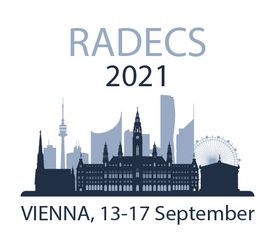Abstract
Laser testing for Single-Event Effects consists in using the photoelectric interaction of a short and focused laser pulse with the semiconductor material of a device to mimic the transient and localized track of electron-hole pairs that is produced by primary or secondary ionizing particles from radiation environments. The fundamentals of the laser testing technique will be presented, including an overview of the physical principles, the main advantages and limitations, and the experimental parameters of the main variants of the technique.
The question of laser-particle equivalence will be discussed, with an introduction to the methods for estimating the equivalent LET of a laser pulse. Typical use cases of laser testing will be reviewed and illustrated with various devices and circuit technologies and some guidelines will be provided to obtain valuable results in the context of radiation-hardening-by-design and radiation hardness assurance.
Contents
-
Fundamentals of laser testing
- Single Photon Absorption
- Two Photon Absorption -
Experimental approaches
- Parameters definitions, impact and ranges
- Common base and variations -
Laser-ion correlation
- Equivalent LET estimation methods -
Use cases and guidelines
- Different test goals
- Case studies
Short CV
Vincent Pouget is a research scientist of the French National Center for Scientific Research (CNRS) at the Institute of Electronics and Systems (IES) of the University of Montpellier, France. He received his BS in Physics in 1996 and his MS and PhD in Instrumentation and Measurement in 1997 and 2000 from the University of Bordeaux, where he worked for more than ten years on the development of various laser techniques for the microelectronics industry, including single-event effects testing, reliability characterization, security evaluation and failure analysis. He founded the Pulscan company in 2008 and joined the RADIAC research group at IES since 2012. His research interests include testing of single-event effects in advanced technologies and embedded systems. He co-authored over a hundred journal articles and conference papers, many of which dealing with laser testing.















